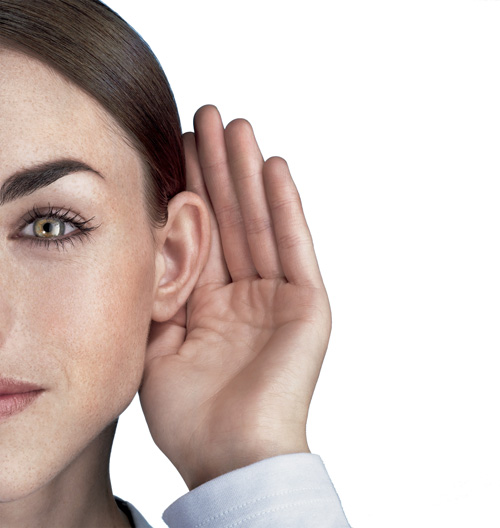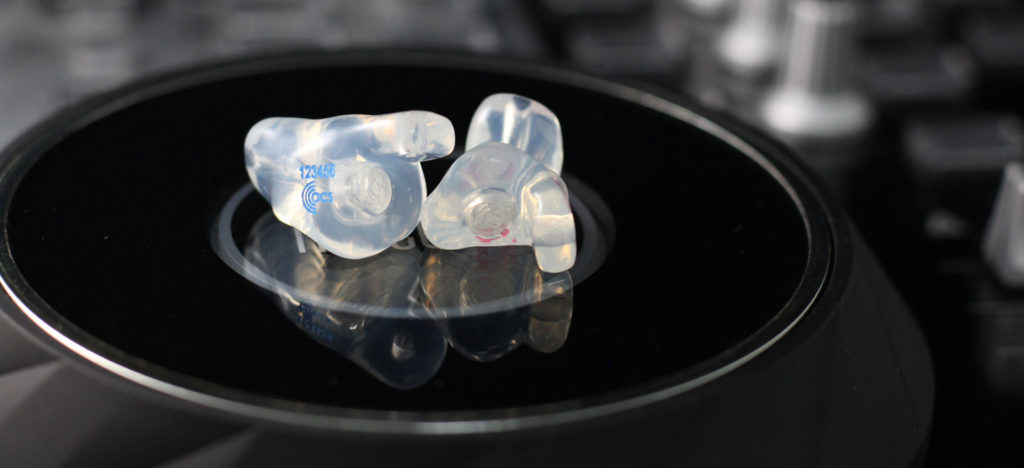Most Effective Ways to Reduce Your Tinnitus
Jordon Thompson, Clinical lead for Tinnitus Therapy at Harley Street Hearing & Musicians’ Hearing Services shares his thoughts on the most effective ways to reduce your tinnitus in an interview with Hearing Tracker for Tinnitus Awareness Week.
Is there a cure for tinnitus or a way that it can be prevented?
The simple answer is yes and no. There are some useful tips to keep in mind that could help prevent someone from developing tinnitus, but first, I think it’s important to start with a definition of what tinnitus is. So, tinnitus is the term that we use to refer to when a patient hears a sound in their ears, that’s coming from inside their body rather than outside. These sounds are often described as whistling, hissing, buzzing, and roaring noises, among others, and they can either be constant, or intermittent. Some individuals will experience the sound in both ears, or just one ear, and it could alternate ears. Others may describe the sounds as not being in their ears but more of like an awareness in their head.
How common is tinnitus?
An American cross-sectional study estimated the prevalence of tinnitus in the US at one in 10, so approximately 10% of the population. Whilst the latest statistics from the British Society of Audiology suggest that approximately 13% of the UK population may have some degree of tinnitus. A cross-sectional study by The Lancet suggested most people tend to describe their tinnitus symptoms as either mildly or moderately intrusive, with only a small percentage reporting a severe intrusion from their tinnitus.
What is the difference between mild to moderate and severe tinnitus?
Whilst there is no way to measure tinnitus as it’s a subjective phenomenon, we talk about tinnitus symptoms in terms of their level of intrusiveness, like how bothersome it is for a patient. This is what we’re referring to typically when we use terms like mild, moderate, or severe. And the way that we would go about trying to measure this is through using validated questionnaires as well as the patient’s intake history and their self-reported experiences. For example, some of the questions on the questionnaire might be things like, is the tinnitus disrupting your sleep, affecting your day-to-day work or day-to-day activities, hobbies, leisure activities, relationships, those types of things.
Someone with severe intrusion from tinnitus might find that a lot of those categories are being impacted by their tinnitus. Someone’s measure of tinnitus, with it being purely subjective, could significantly change, depending on how they’re coping with it at that particular moment in time.
If one is particularly stressed that day, or not feeling great, or there are other sorts of environmental factors, those types of things could affect how they’re perceiving their tinnitus in that moment and so change how they might be feeling about it.
Different Causes of Tinnitus
So, tinnitus in and of itself is not an actual condition, but it’s more of just a symptom. What this means is that tinnitus can be present if there is, say, some other underlying condition that’s there. And that underlying condition isn’t necessarily anything that’s sinister; it could be something as simple as an ear canal that’s been blocked with wax. For this reason, that’s why I’d say that it’s important to speak with your audiologist, GP practitioner or healthcare provider so that they can carry out the necessary assessments and check for or rule out certain conditions and address them.
Some potential causes that could draw out tinnitus, would include things like:
- hearing loss
- age
- whether there’s a history of loud noise exposure
- some ear-related conditions like infections, middle ear infections, infections to the ear, or trauma outside of the ear
- muscle tension
- head or neck injuries
- tension to the jaw
- anxiety
- low mood
- diabetes
- hypertension
- certain medication use
So, some medications that we might use to treat cancers, chemotherapy or radiotherapy, as well as really strong antibiotics or some over-the-counter medications like NSAIDs. It’s a very varied group of things that could have tinnitus as a symptom. There are just so many things that can contribute towards tinnitus that you wouldn’t even think about.
Tips to help avoid getting tinnitus
Hearing loss
First on my list is hearing loss. Not all hearing losses are created equal, though. There’s definitely a correlation between developing a hearing loss and tinnitus. What this means is that many people with hearing loss may report tinnitus, but not necessarily everyone who has a hearing loss will. That being said, it’s still best to avoid hearing loss where possible.
I like to think of hearing loss in terms of three groups – congenital hearing loss, presbycusis, and then acquired hearing loss.
Congenital hearing losses are those that are present from birth, and so they’re most likely the result of genetic factors or development. Unfortunately, there’s not much that can really be done in the way of prevention.
Presbycusis is hearing loss that arises as a natural result of ageing. Our hearing system is mechanical in structure, and through the years, experiences with wear and tear and things like that will eventually lead to hearing loss. And though one may not be fully able to avoid this, there are certainly steps that can be taken to help mitigate, such as regular hearing health checks can help one to stay on top of their hearing health profile and also get management, such as hearing devices early on, which can certainly help to slow the progression of the hearing loss over time.
Acquired Hearing Losses can arise from injury, trauma or disease to the delicate structures of our ears. That might include things like excessive loud noise exposure, so frequently attending concerts or listening to your music through your earphones really loudly. If you work with heavy machinery in loud noise, or if you’re engaging in recreational activities that have a really loud sound component to it, so things like hunting or maybe firing guns. In these instances, using hearing protection to limit the volume of sound that’s going into your ears is going to really help to prevent damage from loud noise. So, eventually, or rather, equally, turning down the volume on our headphones or earphones is a good idea, and then using things like noise-cancelling headphones as well will work because then that means that you’re less likely to increase the volume to block out the environmental sounds because the devices will be trying to do that for you. Typically, what we would say is sound volume levels of about 85dB or more are usually what we would consider to be sounds that are loud and that put one’s ears at risk of damage, and therefore, the possibility of tinnitus. Aim to keep things below that volume, or in say concerts where you might not necessarily have control, wearing hearing protection.
For conditions like middle ear infections or cholesteatomas, that can also affect the delicate structures in the ears, early detection is going to be key, and intervention as well, to help improve the outcome. So, again, that’s why it can be important to speak with your audiologist or healthcare professional as well about these things.
Filtered or custom hearing protection
Filtered hearing protection is another way to manage this. Hearing protection can sound pretty awful, a bit like you’ve got your finger stuck in your ears, and you feel quite blocked up and music doesn’t sound like anything that it should do. But using ‘filtered’ protection provides a reduction to the level of the music, it does it in a way that aims to maintain the same overall sound quality and sound fidelity, and so it’s not compromising on that. And taking this a step further, custom filtered hearing protection can be better, as the custom fitting helps to ensure that the acoustic seal is maintained, and what this does is it forces sound through the filter, and so that it can’t really get in through the ear canal.
It’s very easy to acquire hearing protection, and I think making small changes like that can have a really big impact, especially if you’re looking to try to prevent tinnitus.
Mental well-being
Poor emotional health can also be a trigger for tinnitus in some cases.
High levels of stress, anxiety, and worry could also lead to poor sleep and fatigue, which can further sort of trigger or exacerbate tinnitus symptoms. The pressures of day-to-day life mean that it’s not always easy or always possible to avoid stress, but I think certainly trying to take steps or make time to try to reduce stress and even incorporating certain exercises or activities that help reduce stress can be very beneficial to helping to prevent tinnitus.
Some of these activities might include things like mindfulness or physical exercise. Certainly, breathing techniques can also be a helpful way to reduce stress and anxiety. I would say, you know, do try to explore ways that work for you. Not everything will work for everyone, but it’s certainly important to explore those avenues. I’d say the take-home message here is that you want to look after your emotional and mental well-being as this can just help reduce the onset of tinnitus.
Diet and Exercise
There’s a lot online about either changing diets and looking at things like alcohol, caffeine, or salt in one’s diet. Is there any truth in this?
It’s important to make a distinction between any one food item and diet. So, when I’m using the word diet, I’m obviously not talking about trying to lose weight but more in the sense of the kinds of foods that are habitually consumed as a whole. Nutrients and macronutrients don’t work in isolation in the body, and therefore, talking about avoiding any one food group or food substance is probably not very helpful. So generally speaking, most of the literature would suggest that you don’t have to avoid any one food substance or food to prevent tinnitus. The research does, however, suggest that there is a link between your cardiovascular health, (so think like your heart, arteries, veins), and your ears. So, consuming a diet that helps to maintain the health of your cardiovascular system, or reduce the risk of cardiovascular disease, would be something that would be recommended.
Incorporating regular exercise or staying active are some examples of things that could be beneficial to your cardiovascular health. However, I would suggest, speaking with your medical practitioner if you have any sort of particular concerns related to this or you were looking for more detail.
And then most of the literature doesn’t really suggest that there’s a causal link between tinnitus and caffeine. So, I know that there are probably some people who are listening to this now, you know, rejoicing that they won’t have to give up their morning cup of joe. Similarly, with alcohol, there doesn’t seem to be a strong link between it and tinnitus, or at least the studies that exist so far haven’t been really showing that. However, I’d say, as alcohol, especially in large quantities, can have secondary effects on one’s cardiovascular health, it’s probably, or it’s possible that there might be an impact via that route, so like cardiovascular system, and then that having an impact on the auditory system, and then tinnitus possibly following as well. So, I think that, as with most things in life, food substances, food or otherwise, you know, it’s best to avoid excess. I think moderation would be key.
Sometimes, despite our best efforts, some people can still develop tinnitus, but being mindful of the things we spoke about here that are within your control is the best defence one has to help ensure that they don’t develop tinnitus.
I really hope that these tips and this advice will be helpful for any viewers and anybody that’s worried about their tinnitus. If you’d like to book a hearing therapy consultation or custom hearing protection at Harley Street Hearing and Musicians’ Hearing Services, call 020 7486 1053 or complete our contact form below.
10 Facts you need to know about tinnitus video
See Jordon’s full interview with Matthew Allsop on Hearing Tracker below. Matthew is a Partner at Harley Street Hearing, and a content creator for Hearing Tracker, where he shares his honest opinion on all new hearing-related stories and technology. Hearing Tracker is the world’s first truly independent resource for hearing aid customers.
Enjoy this article? You might be interested in some of our others:















